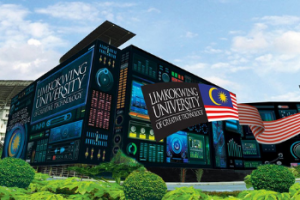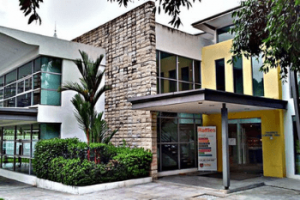Home » electrical engineering
What Your College Didn't Tell You About IR 4.0
The Fourth Industrial Revolution (IR 4.0) is happening!
We’ve come a long way since the first industrial revolution. After centuries of our efforts to streamline the production and manufacturing process, we finally find ourselves in the age of a remarkable transformation due to the digitization of manufacturing, called the Industrial Revolution 4.0, or IR 4.0. It is also being introduced in higher education. Students can now go to a college dedicated to implementing elements of Industry 4.0 in the education system to prepare them for the future workforce.
Industry 4.0 explores data and machine learning, revealing possibilities that past scientists never have imagined. IR 4.0 isn’t all about new and advanced systems and technology; this new phase shifts how companies operate today through the massive amounts of data obtained across different devices.
Before we begin, here’s what you need to know about Industry 4.0 and its predecessors.
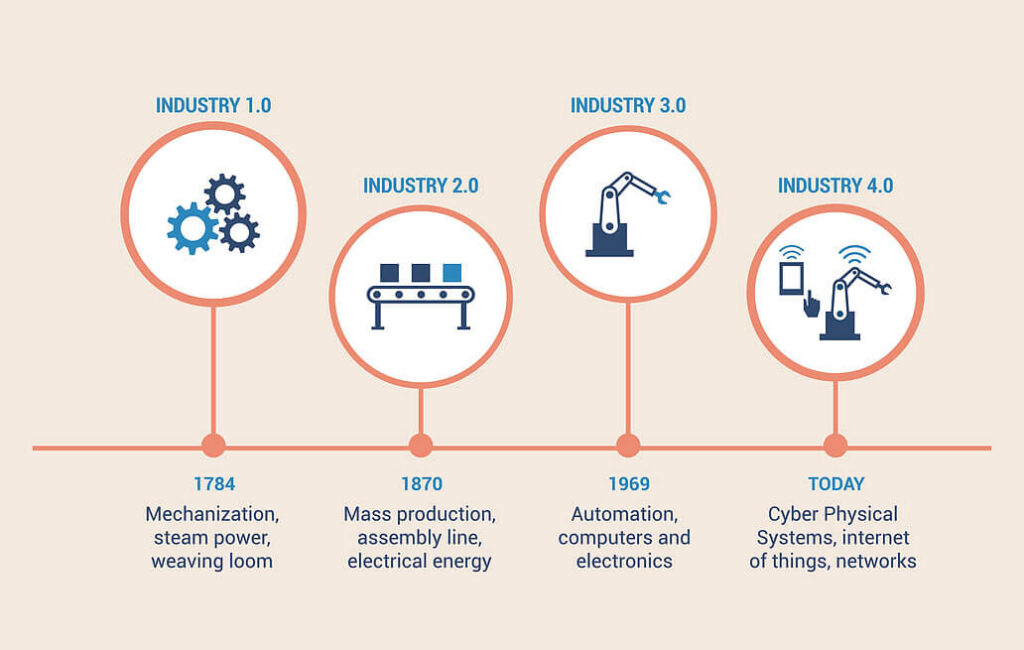
The First Industrial Revolution (18th Century)
The mechanizing of the manufacturing process first began with manual labor and work animals. People incorporated water and steam to power engines in factories.
The Second Industrial Revolution (19th Century)
The use of electricity and steel was eminent in this phase to increase the speed and mobility of factory machinery. Assembly line was also introduced to ensure a continuous and systematic workflow in industrial operations, which was prominent in the early stages of automobile production.
The Third Industrial Revolution (20th Century)
Factories moved to the utilization of electronic equipment and computers to increase productivity of the manufacturing process. We began focusing on mechanical and digital technology (automation, IT systems, electronics).
The Fourth Industrial Revolution (Today)
IR 4.0 optimized the computerization from the third industrial revolution and developed new levels of improvement for the manufacturing industry we know today.
IR 4.0 adopts the use of electronics, automation, and computers from the past revolution and enhanced the manufacturing performance with smart systems and tools such as machine learning, Artificial Intelligence (AI), high-speed Internet, wireless trackers and scanners, and automated equipment.
Elements Of Industry 4.0 That Your College Should Tell You
The shift from IR 3.0 to IR 4.0 resulted in the emergence of new and efficient elements that ease a variety of processes in the manufacturing industries. As we shift to an era of advanced digitization in the workforce, you should choose a college that includes elements of Industry 4.0 in its courses. Some of the widely used ones are:
- The internet of things (IoT)
- The industrial internet of things (IIoT)
- Cyber-physical systems (CPS)
- Smart manufacture
- Smart factories
- Cloud computing
- Cognitive computing
- Artificial intelligence
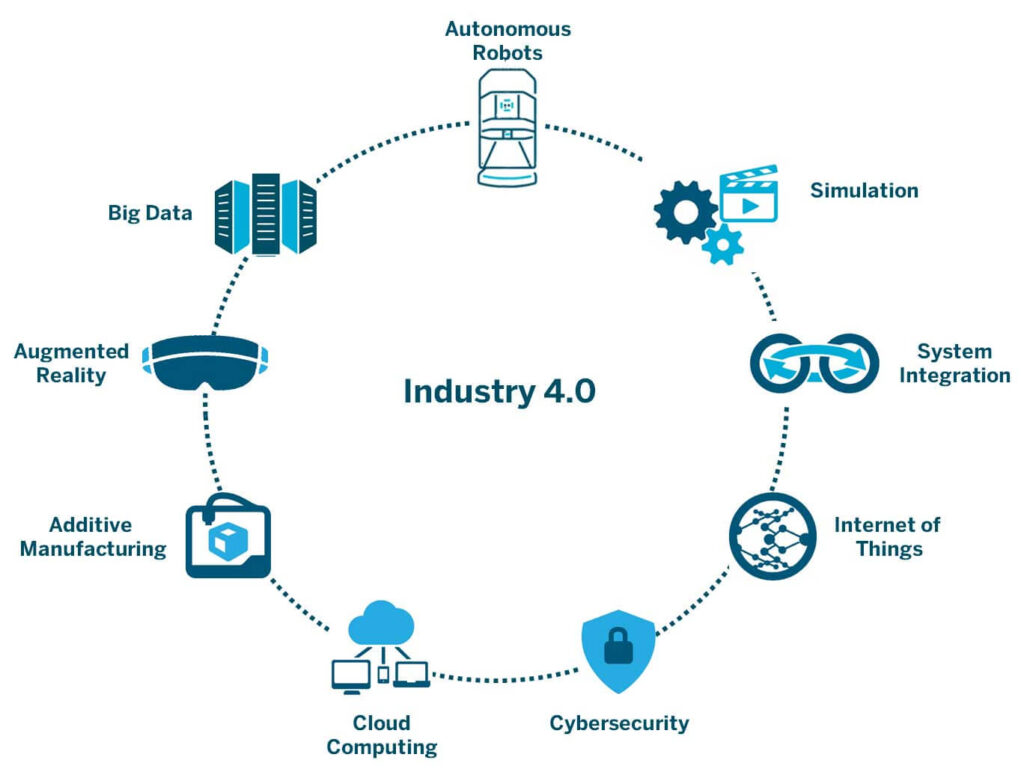
So, what can IR 4.0 do for us?
Increase Convenience And Enhance Experiences
The Internet of Things (IoT) is actually simpler than it sounds. It refers to physical devices that can collect and share data with each other as long as they are connected to the Internet
Think of your lights or air conditioner unit that you can control with an application on your phone. This is made possible due to a seamless connection established between a wireless network and a sensor installed in the gadgets. The increased intelligence in these digital devices enables them to become more responsive, slowly unifying the digital universe with ours.
Want To Know The Best Part?
As consumers, we now have access to devices that are made to be more convenient, efficient, and fast. From homes to offices, we are surrounded by smart devices that can automatically turn on lights when we’re in the room, and even smart speakers that can play music just by listening to our command.

Self-driving cars (Tesla, anyone?) also help to decrease road mishaps; sophisticated sensors and systems in these cars detect potential danger and formulate a preventative response. As a result, road accidents will decrease along with casualties and property damage.

Improve Business Operations
Have you heard of big data? It is a massive volume of data that swarms a business on a daily basis. Organizations analyze the data for helpful insights that can improve their planning and decision-making process. Below are some real-world examples of the usage of big data:
- Monitor health conditions through data obtained from fitness trackers
- Navigate unfamiliar areas through road mapping in autonomous vehicles
- Discover and predict consumer shopping habits
Big data stores massive amounts of data that is always growing and updating itself with the latest information. Its size and complexity are so extensive that no traditional data management system can handle the speed and size of the process.
The access to real-time data allows businesses to flourish. As it constantly updates itself through new data generated each second, businesses can obtain any real-time information regarding consumer behaviour, product sales report for different chains, profitability, and even company performance.
The best part is, it only takes a quick search to receive an abundance of data. Then, it will be analyzed by companies to determine the best ways to improve their operations in order to boost their productivity and profitability.
You can now obtain a certificate in data science or data analytics in college. As businesses around the world shift to big data, many students study big data analytics to broaden their career prospects in Industry 4.0.
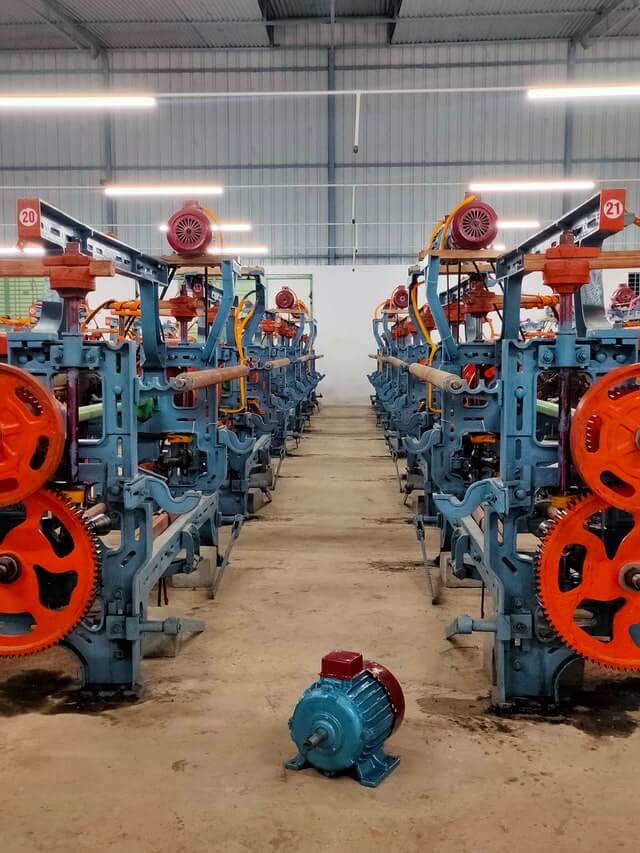
Optimize Supply Chain Management Performance
The supply chain industry is constantly pressured to produce cost-effective products quickly without jeopardizing the quality. Although humans are capable of carrying out various complex tasks in the industry, there are other factors that affect their performance such as human error, exhaustion, and injury.
Machine Learning (ML) helps reduce risks while carrying out complex tasks efficiently. A subset of Artificial Intelligence (AI), machine learning does not require specific programming to carry out its actions. It only relies on an algorithm or system to analyze large amounts of data, detect potential risks, and predict appropriate solutions.
With the predictive analysis function, manufacturers are able to predict risks and solve them by fixing flaws and errors detected by machines. This is especially important in high-risk jobs like transporting hazardous items and at construction sites.
Imagine how many lives could be saved when we have the technology that predicts and prevents workplace accidents.

Make Your Mark In IR 4.0
Industry 4.0 is not slowing down anytime soon. It is in need of more talents who understand the complexity of IR 4.0’s smart machines and systems in order to utilize them well.
To make your mark in the Fourth Industrial Revolution, you must take the correct education pathway. We’ve compiled a list of interesting college degrees that you should pursue in order to stay relevant to the industry. The future is in your hands!
Have troubles applying for college? We can help! Contact us at +60 11-2069 9087 or drop us an email at [email protected].
Are you interested to study in Malaysia?
Please fill up the form and our conselors will get back to you shortly.
Most Popular

Study Abroad Perks & How To Guarantee Your Spot
Study Abroad Perks & How To Guarantee Your Own Spot Your study overseas is worth every penny. Image source: Pexels When you study abroad, you experience better personal growth. Sure, studying abroad and navigating
What's new

5 Easy and Affordable Recipes for Students Away from Home! – Eduloco Recipes
Looking for some easy and wallet-friendly recipes? You’re in the right place! At Eduloco, we understand the student life hustle, and that’s why we’ve curated

How to Write a Convincing University Application Personal Statement (+ Free Template!)
Applying to universities can often feel like navigating a labyrinth with numerous challenges at every turn. The weight of crafting the perfect essay, capturing your

Empowering Education with Eduloco’s Student Loan in Malaysia
Eduloco Collaborates with Affin Bank to Offer Student Loan Program At the forefront of educational accessibility, Eduloco, an emerging EdTech platform focusing on democratizing higher
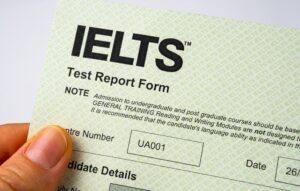
TOEFL vs. IELTS: Choosing the Right English Proficiency Test for Your 2024 Study Abroad Journey
Introduction: Planning to take an English proficiency test for your study abroad dreams but unsure about TOEFL and IELTS? You’re not alone. Despite the widespread

Democratizing Education: Personalized Academic Plans For Students in Secondary Education
Democratizing Education: Personalized Academic Plans At Eduloco, we’re pioneering the democratization of education, starting with tailored academic plans for secondary students. This isn’t just about
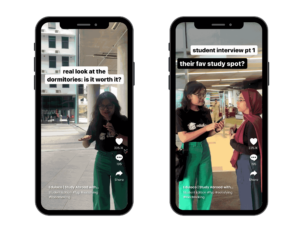
Eduloco: A Beacon of Diversity, Equality, and Inclusion in the Tech Sector
Tech companies must prioritize diversity, equality, and inclusion to fully realize the industry’s potential. Systemic biases have led to historic exclusion of underrepresented groups, creating a vicious cycle of limited opportunities. Actionable strategies are needed to promote diversity, equality, and inclusion beyond hiring, such as creating equitable opportunities for all. These measures don’t just benefit individual employees but the business as a whole.

Jobs for Students in Malaysia — Monetize Your University Experience
Explore part-time online jobs for Malaysian students while celebrating university life through Eduloco’s ‘Loco Ambassador’ program. Earn while sharing your authentic journey and boosting your online presence.




